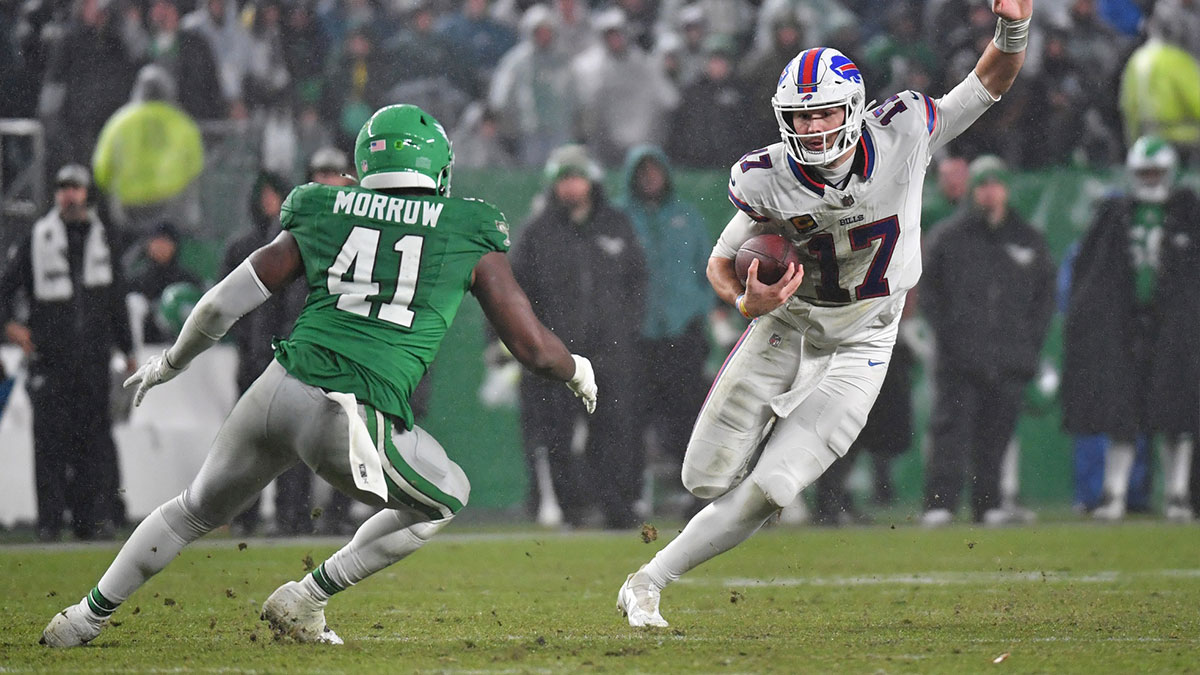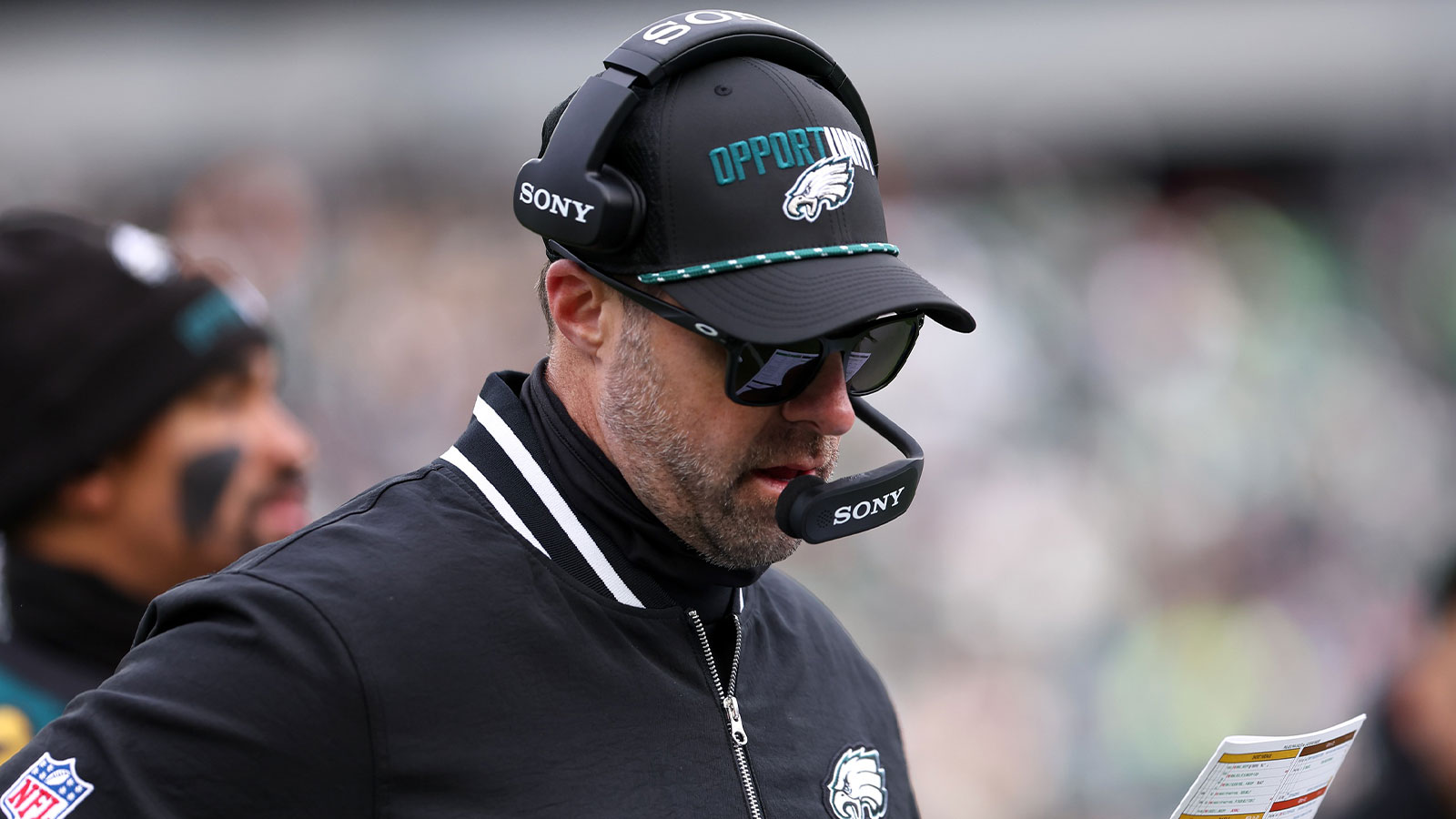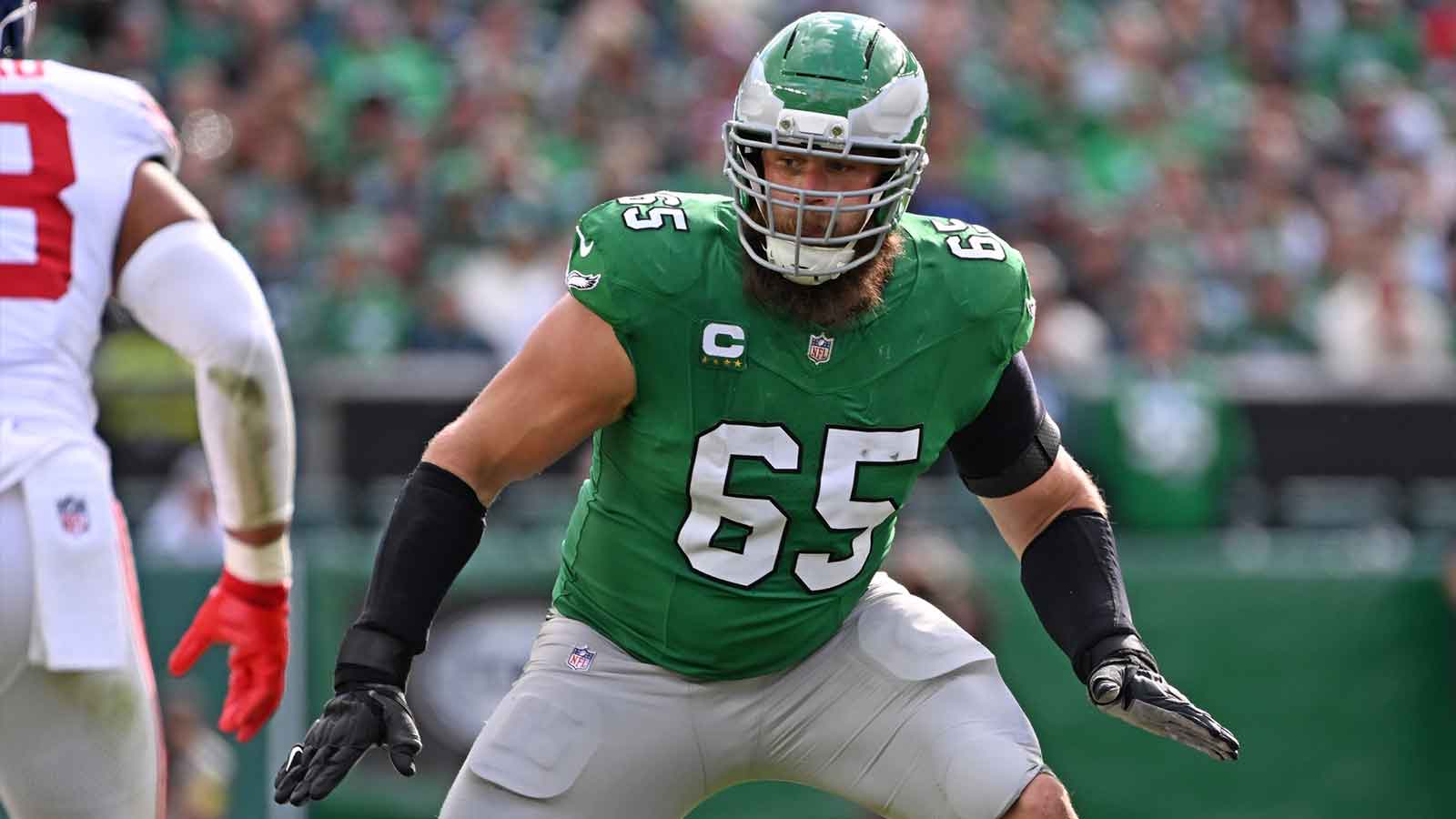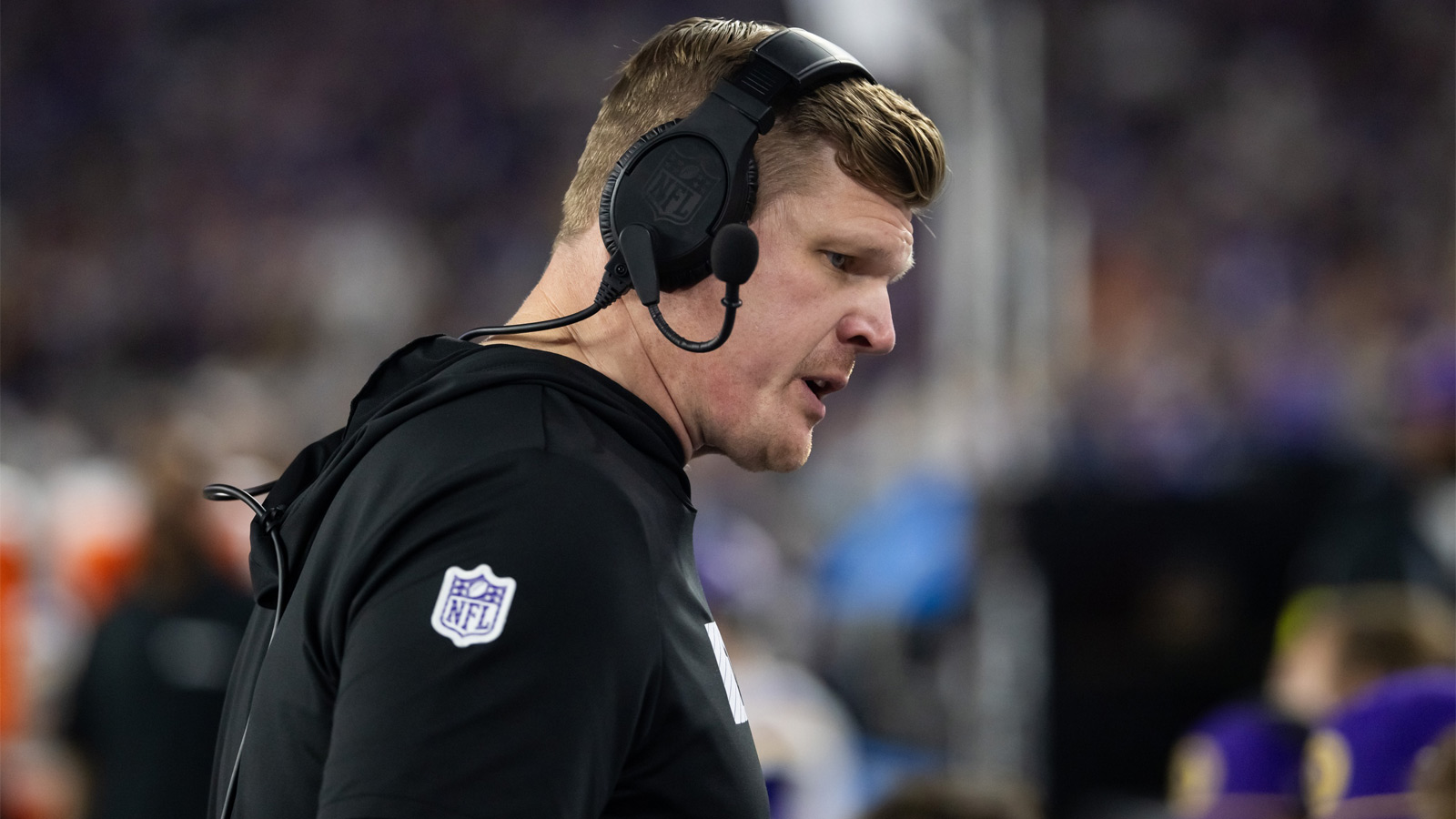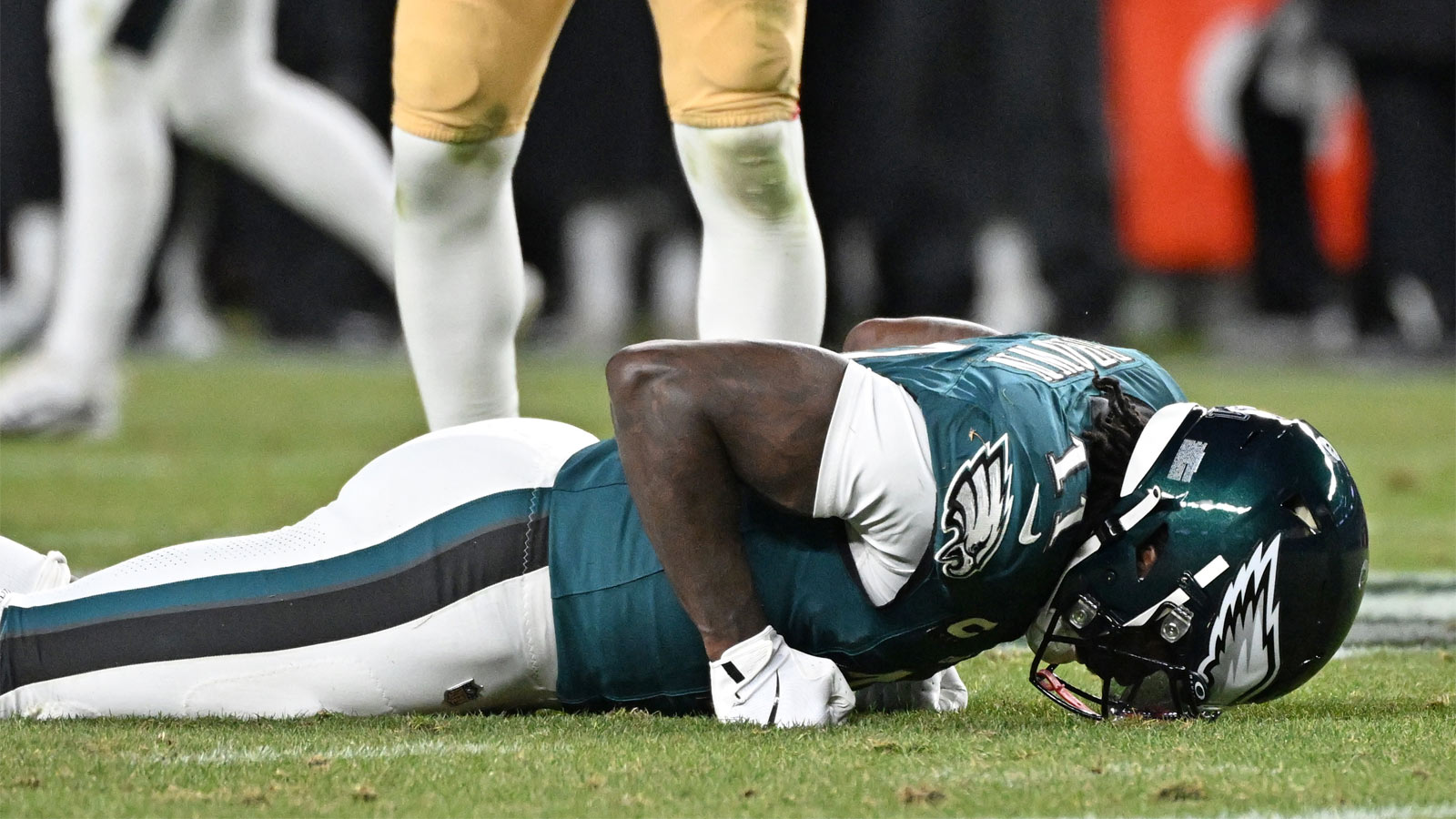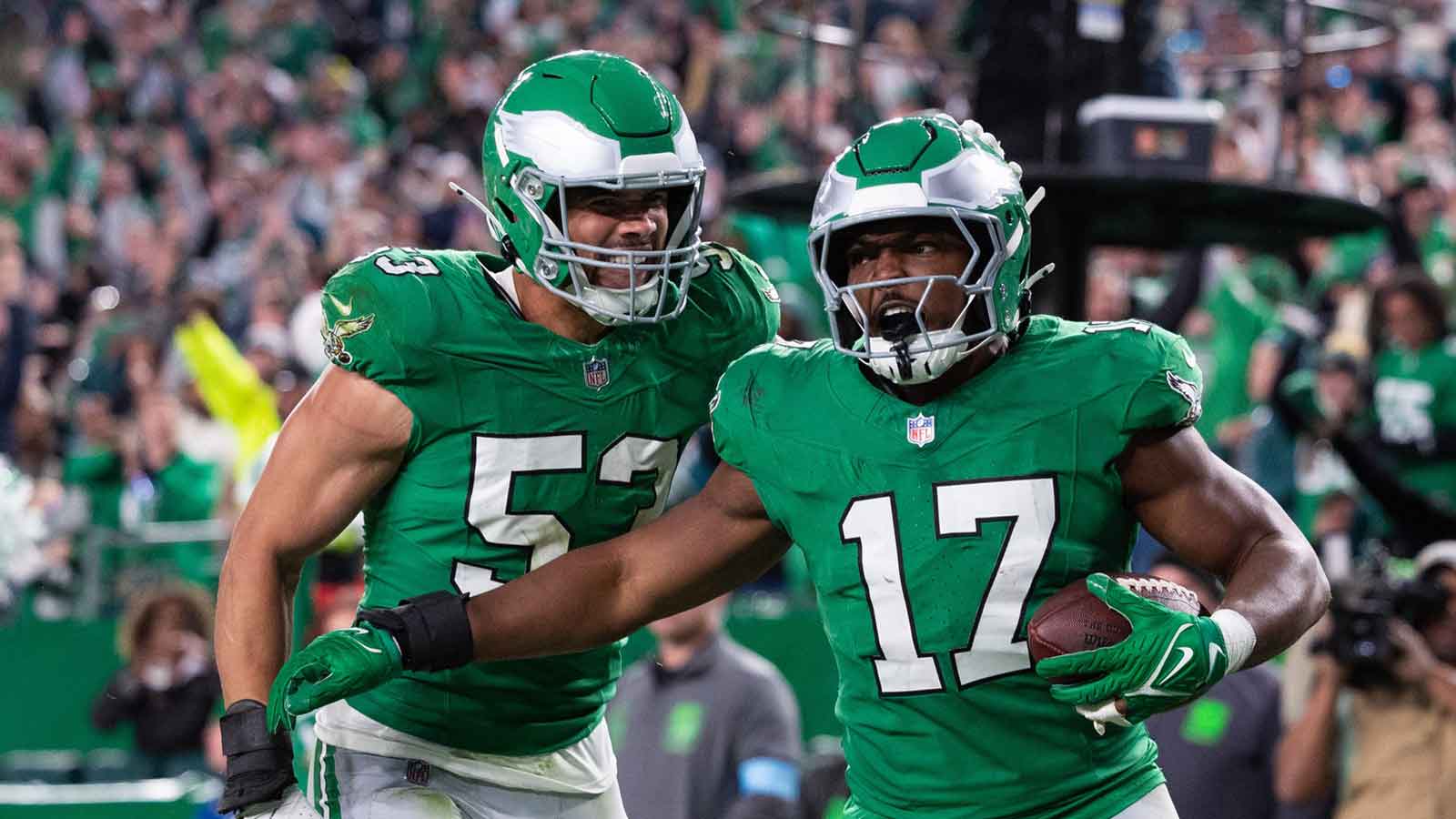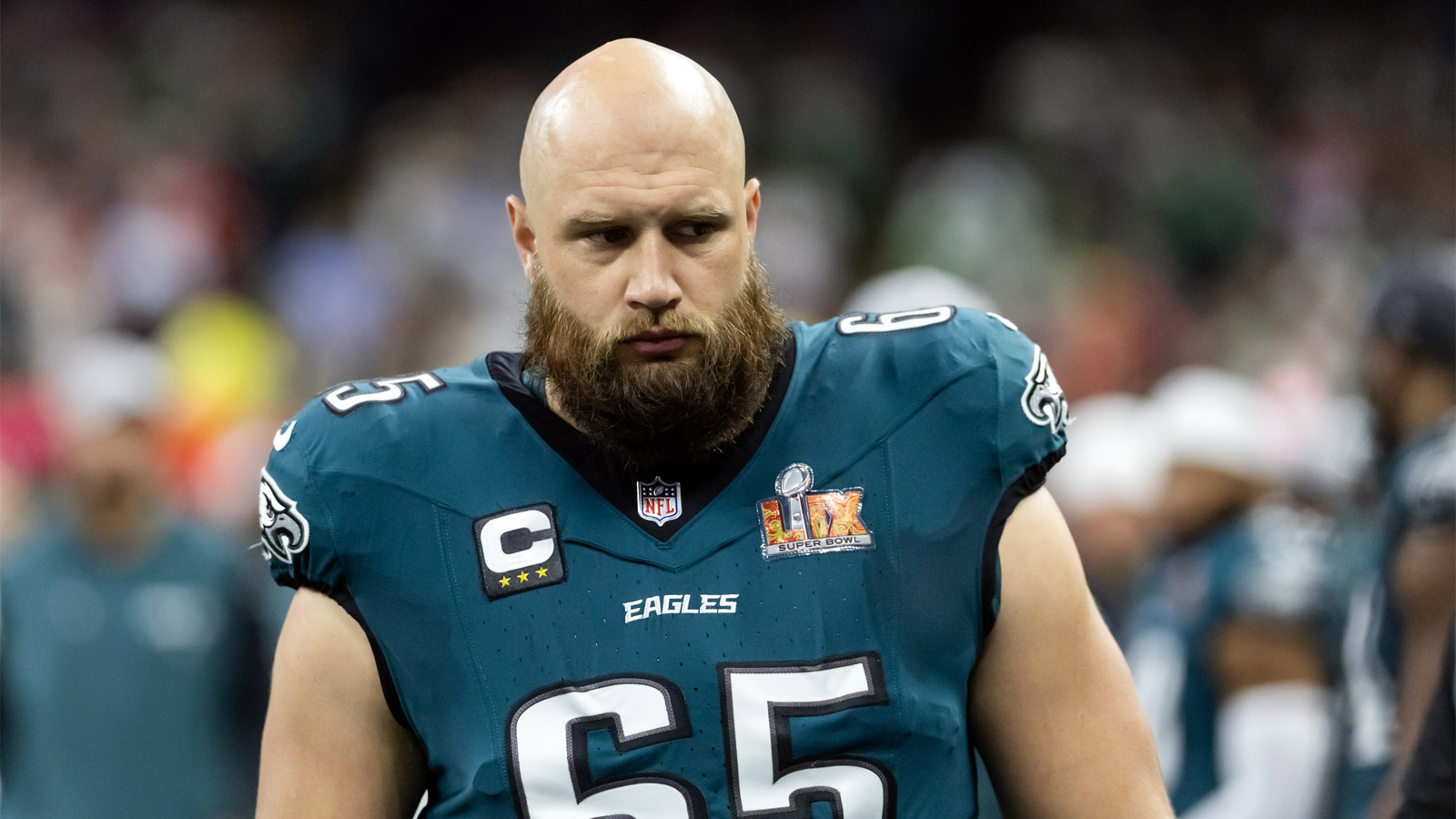Speed kills, and the lack of it can also kill a team’s chances at success — just ask the Philadelphia Eagles.
After having relied on burner DeSean Jackson to take the top off of the defense for the vast majority of his career with the Dirty Birds, the former Cal Bear has been given some reinforcements when it comes to speed in the Eagles wide receiver ranks.
Going into his 13th year in the league, Jackson’s speed has been one of the best game-changing catalysts that this league has experienced, from returning punts (see the Eagles versus Giants walk-off punt return touchdown) to catching bombs (see the Eagles versus Washington opening-play bomb from Mike Vick).
But with the team putting a big-time emphasis on upgrading this element of their offense, Jackson will not be the only speedster on the roster anymore.
Former San Francisco 49ers wideout Marquise Goodwin, who ran an official time of 4.27 seconds during his 2013 pro day workout, was acquired by Philly for a swap of sixth-round selections. Goodwin, who has provided up-and-down production so far in his career, is a former Olympian as well, having been a member of the United States’ 2012 Olympic Team, competing in the long jump event.
While Goodwin’s best season came back in 2017, when he was 38 yards short of his first career 1,000-yard season, his career stats were not a turnoff for the Eagles, who desperately needed to inject speed into their offense. A likely roster cut after training camps were over for the 49ers, the Eagles now have a player who may have a chip on his shoulder and is willing to do whatever it takes to make the team.
With how the team’s receiver depth chart is currently set up, Goodwin should not be in line for a 900-plus yard season anytime soon, even though there truly are no solid names at the top of the list.
While Goodwin was the team’s lone traded-for receiver this offseason, the Eagles hit that position hard in the draft, using three selections on the position.
In the first round and with the 21st overall selection, Philadelphia selected TCU wide receiver Jalen Reagor to kick off their draft, demonstrating their determination to upgrade their offense from the get-go.
Reagor turned in a disappointing 4.47 40-yard dash time at the NFL Combine, when he was expected to run right around 4.3. Reagor said that while the time was disappointing, it was due to him being up 11 pounds from his TCU days (206 vs 195 pounds). In a virtual pro day that was conducted back in April at a Houston training facility, Reagor produced times that fit his profile much more efficiently, clocking in at 4.22 and 4.28, according to the Houston Chronicle.
Another way to demonstrate his speed is through data collected by Slants, a company that tracked game speed versus timed speed. Their measurements had Reagor come in with the second-fastest game speed, behind Henry Ruggs III, with 20.80 mph, a mark that was only bested by Miles Sanders, Nelson Agholor and Jackson at any point in the 2019 NFL season.
Putting it into easy-to-understand terms: Reagor is fast, but he is efficiently fast, and that is a big part of what put Howie Roseman and the Eagles onto him in the first round. His speed alone is a big enough weapon that the Eagles have been lacking, and he should be able to be a much-needed element into the Doug Pederson offense to help them regain Super Bowl-level offensive efficiency.
With the 168th pick in this year’s draft, the Eagles went back to wide receiver, selecting Boise State receiver John Hightower. While he is less of a household name than what Reagor brings to the table, Hightower’s skill set is just as helpful for the team.
Looking at just the first group of receivers that were clocked in Indy for the scouting combine, Hightower’s 4.43-second 40 tied for third-fastest among his group, showcasing his speed. He has a history of returning kicks while in Boise, and his success there could give him a good shot at making more of a name for himself on special teams than on the offense, at least right away.
Hightower may not come in as a big-time name (he transferred to Boise State from a junior college, so that is not new to him), but his utility-tool abilities can provide the Eagles with another weapon to throw at a defense. The Eaglee could even run him out there with both Jackson and Reagor in certain “speed-based” packages.
Mockdraftable, after compiling all of his tested metrics, has a very interesting list of NFL comparisons for Hightower, with the most noteworthy ones being Torry Holt (90.5 percent similarity), Reggie Wayne (89.3 percent), and a name that all Eagles’ fans will know, Freddie Mitchell (88 percent), just to name a few.
Hightower’s abilities, while overshadowed by those of Reagor’s, are nothing to scoff at, and he should be able to carve some sort of a role out for himself in 2020, even if it is through special teams.
The final draftee that is part of the newly-revamped receivers room is Quez Watkins, who was taken with the 200th selection (6th round) this year out of Southern Miss University. His official time of 4.35 in the 40 slots him in between both Reagor and Hightower, and while drafted last of the three, Watkins has a great chance at making this roster, even as one of the final wideouts.
Having led all Conference-USA receivers with 1,165 receiving yards in 2019, Watkins left Southern Miss as the all-time leader in receiving yards in school history. He declared for the draft a year early, with NFL analyst Lance Zierlein providing feedback on what Watkins needs to do to improve when making the jump to the NFL. Zierlein wrote:
“Early-entry prospect with adequate size and speed but needs to prove he can rise to the occasion against NFL competition. Watkins' confidence has been affected by [the] level of competition and his catch focus appears to change when he works into traffic.”
What Zierlein’s statement essentially says is that while Watkins feasted upon fellow C-USA defenses to the tune of almost 1,200 receiving yards last year, his jump from the lower level of collegiate Division I football to the pros will be the biggest determining factor in how successful he can be. Running all over one level of collegiate football is one thing, but carrying that demeanor, toughness and success over to the highest level is something that players commonly have trouble with.
NFL Network host Rhett Lewis said that Watkins is a “dynamic playmaker” who showcased his skills in the C-USA, helping put him on the map for NFL teams to take a look at. He also said that the Eagles were one of the teams to have met with him, showing that they had an interest in him the whole time.
The element of speed is what has made Patrick Mahomes and Lamar Jackson and Tyreek Hill and other players good at what they do. It is also an element that can help make other facets of a team’s offense look better than they really are, which is what the Eagles are hoping for here.
A calling to upgrade their speed, which has finally been carried out, can now take center stage and make the league and its fan base overlook the elements the offense is lack. Elements that include quarterback consistency and a proven running back that has strung together a solid, non-injury season, among other things.
The Eagles are right up there with the Dallas Cowboys for the NFC “Least” East crown, while the New York Giants and Washington Redskins wallow below .500 with their dreams cemented in the draft lottery.
Speed can help get Philly to that next level, one of being looked at as a favorite and not just some 8-8 team that consistently figures out a way to get into the playoffs, only to then either win on a double-doink missed field goal (sorry Chicago) or to get blown out because they played like they were seeded, sixth, a long-shots to contend.








